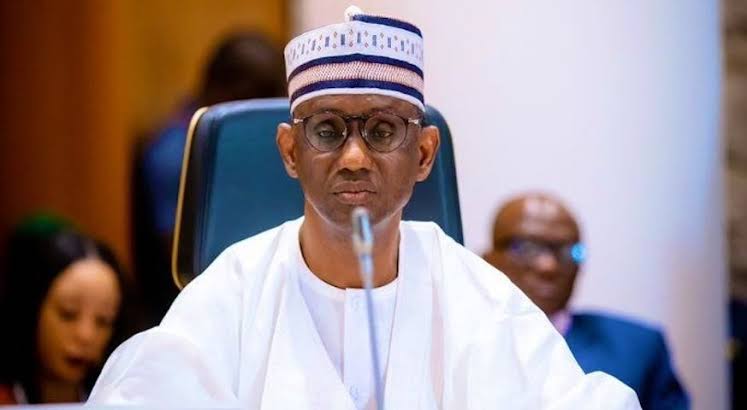In a bold and confident statement during the All Progressives Congress (APC) National Policy and Development Summit in Abuja, Nigeria’s National Security Adviser (NSA), Nuhu Ribadu, declared that the country has become significantly more secure since President Bola Ahmed Tinubu assumed office in May 2023.
Addressing key stakeholders, party leaders, and security experts at the summit, Ribadu outlined the security gains made within the first year of Tinubu’s administration. He highlighted dramatic improvements in national security that have come through a blend of kinetic military operations, intelligence coordination, and diplomatic efforts.
Nigeria’s Tough Security Legacy
Ribadu began by acknowledging the dire state of the nation’s security before Tinubu took office. “We inherited a deeply troubled country,” he said, pointing to the widespread attacks by Boko Haram in the North-East, banditry in the North-West, farmer-herder clashes in the North-Central, secessionist violence in the South-East, and long-standing unrest in the Niger Delta.
“Thousands of lives had been lost, citizens lived in fear, and lawlessness threatened to erode our national fabric,” Ribadu stated. “However, we came prepared with the resolve to fight back—and we have.”
Over 124,000 Insurgents Surrendered
Among the most striking figures shared by the NSA was the surrender of over 124,000 Boko Haram and ISWAP members, along with their families, since May 2023. Ribadu attributed this massive surrender to increased military pressure and intelligence-led operations in the North-East, coupled with efforts to deradicalize and reintegrate defectors.
“This is unprecedented. Not only have they laid down their arms, but many are also participating in rehabilitation programmes,” he said.
Military Successes and Seized Weapons
Ribadu also revealed that over 13,500 insurgents and armed criminals have been neutralized, while security agencies have recovered more than 11,000 illegal weapons from across the country. These recovered arms were publicly destroyed in compliance with international arms control regulations.
“The arms we’ve removed from circulation could fuel wars in multiple countries,” Ribadu noted. “This shows how dangerous our situation was and how much progress has been made.”
Security Restored in the South-East
The NSA celebrated the decline of the so-called “sit-at-home” orders in the South-East, previously enforced by armed separatist groups. He confirmed that normal life is returning in the region.
“In just a few months, we’ve reopened more than 50 police stations and security posts that were destroyed. Markets, schools, and transportation are functioning again. The people are reclaiming their lives,” Ribadu stated.
The Kaduna Model: Peace through Dialogue
Ribadu praised what he described as the “Kaduna Model” — a non-kinetic, dialogue-based peace initiative that has helped reduce violence in the North-West. According to him, this approach has led to the rescue of over 11,000 hostages, the neutralization of 70 senior terrorist commanders, and the surrender of 35 warlords.
“This shows that not all battles need to be fought with bullets. Dialogue, when combined with strength, can bring lasting peace,” Ribadu said.
Challenges Remain, But Progress is Clear
Despite the successes, Ribadu acknowledged that security threats still exist. “There are still attacks, kidnappings, and attempts by enemies of the state to destabilize our progress. But make no mistake—we are winning,” he stressed.
He called on Nigerians to remain hopeful and vigilant, and on the media to highlight the successes as much as they report challenges.
A Renewed Commitment
Ribadu concluded with a powerful message: “President Tinubu’s administration is committed to securing every inch of this country. We have the strategy, the resources, and the political will. With unity and continued support from citizens, the Nigeria of our dreams is within reach.”
